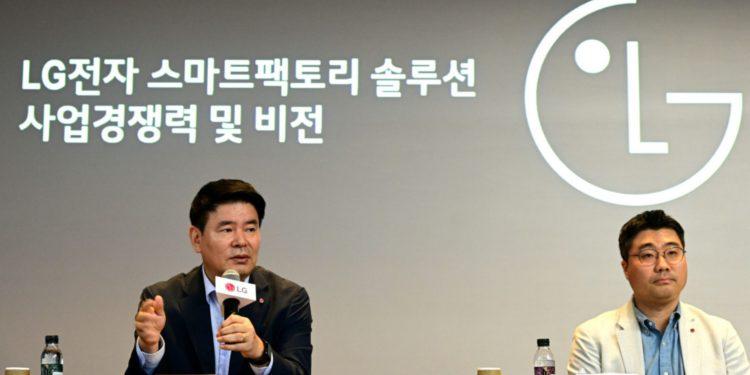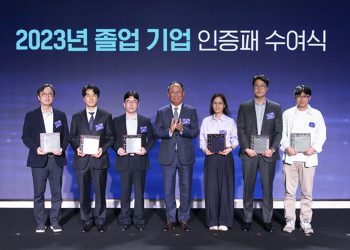LG Electronics has ventured into the smart factory solution market, aiming to generate over 1 trillion South Korean won (approximately $725 million) in sales by 2030. Leveraging its extensive manufacturing expertise and artificial intelligence technologies, the South Korean tech giant aims to transform traditional manufacturing facilities into advanced, digitized smart factories.
This year marks LG’s entry into the smart factory sector, offering technologies and services designed to automate and enhance manufacturing processes. With a vision to expand its footprint in the industry, LG Electronics seeks to establish itself as a major player in the global smart factory market.
LG Electronics Production Engineering Research Institute (PRI) has secured orders from external clients expected to total approximately 200 billion won this year. With this, LG plans to transition towards a software-centric platform approach beyond its traditional hardware offerings.
The PRI lab, renowned for its expertise in production technology, has been crucial in customizing manufacturing operations for LG subsidiaries such as LG Energy Solution and LG Display Co.
The initiative targets diverse industries, including semiconductors, pharmaceuticals, biotechnology, and food and beverage, reflecting LG’s broadening market reach and technological expertise.
Heading LG PRI’s smart factory division, Jeong Dae-hwa emphasizes a comprehensive approach encompassing factory diagnosis, automation roadmap establishment, and specialized services like production consulting and equipment development. Leveraging over 60 global production facilities and backed by a portfolio of 1,000 patents in smart factory technologies, LG aims to enhance manufacturing efficiencies and operational excellence globally.
The company aims to leverage its intelligent autonomous factories in Changwon, South Korea, and Tennessee, USA, which the World Economic Forum has recognized as “Lighthouse Factories.” Implementing smart factory systems at these facilities has enhanced productivity by 17%, improved energy efficiency by 30%, and reduced costs related to quality defects by 70%.
With a keen focus on minimizing delays and errors between production processes, LG’s smart factory systems maximize operational efficiency and profitability. For instance, a 10-minute delay on one of LG’s refrigerator production lines in Changwon could result in a shortfall of 50 units, equating to a potential loss of $72,322 based on each refrigerator’s cost of approximately $1,446.
LG Electronics has amassed a wealth of manufacturing and production data totaling 770 terabytes over the past decade.
Also Read:
- SK Group Reshapes Energy Sector with Major Merger
- Samsung Launches Advanced Energy Management for Tesla Owners
- Kakao Entertainment Named First Korean TCRP Partner by Google
- Korea Unveils Blueprint to Become Global Science and Technology Hub
- Hyundai Opens Preorders for Casper Electric Mini SUV in South Korea







